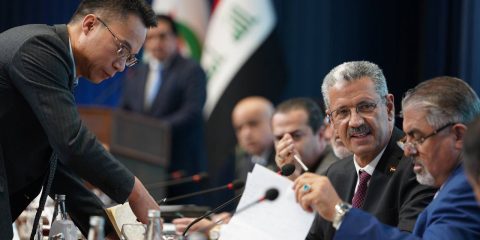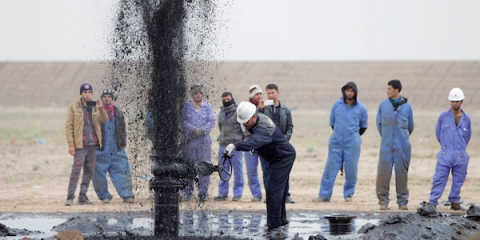Cleric’s Role Reversal Upends Iraq’s Political Order
Ever since the 2003 U.S.-led invasion of Iraq, there have been two Baghdads. One a chaotic metropolis choked by traffic and tormented by bombings. Another is the so-called Green Zone, a placid expanse of empty avenues and verdant gardens that is forbidden to the average Iraqi. There, beyond the checkpoints, razor wire and bomb-sniffing dogs, […]Yaroslav Trofimov writes for The Wall Street Journal:
Ever since the 2003 U.S.-led invasion of Iraq, there have been two Baghdads. One a chaotic metropolis choked by traffic and tormented by bombings. Another is the so-called Green Zone, a placid expanse of empty avenues and verdant gardens that is forbidden to the average Iraqi.
There, beyond the checkpoints, razor wire and bomb-sniffing dogs, lie the country’s government and parliament, foreign embassies and the homes of most of the people who matter in the new Iraq.
That new Iraq is consistently ranked as one of the world’s most corrupt nations. And now that its economy is melting down amid low oil prices, popular rage with the Green Zone’s inhabitants has become a major—and potentially destabilizing—force just as the country begins to roll back Islamic State.





